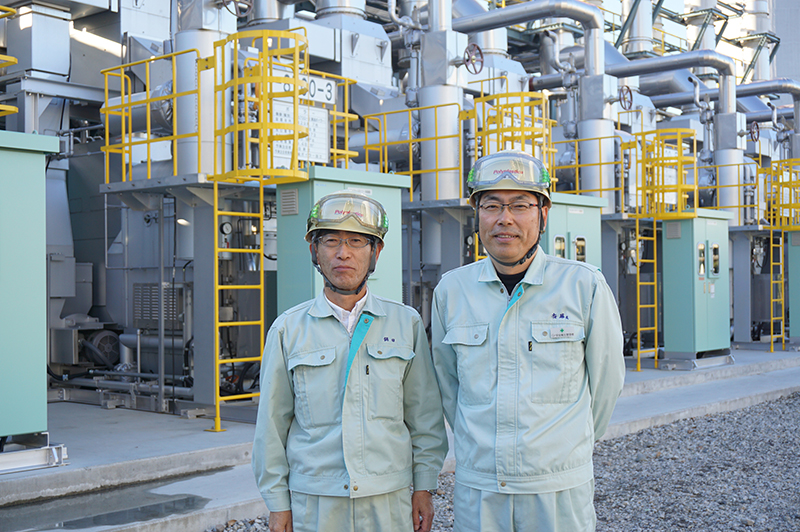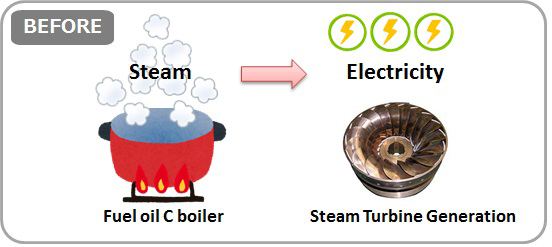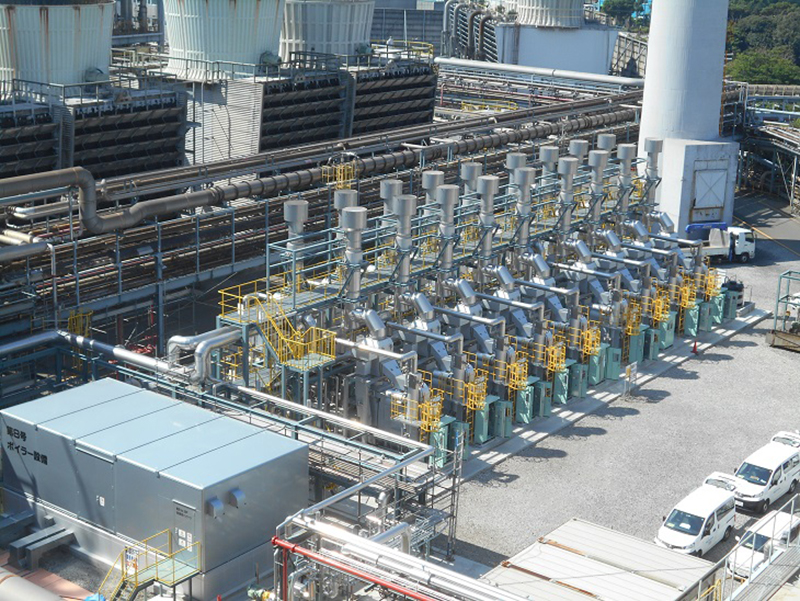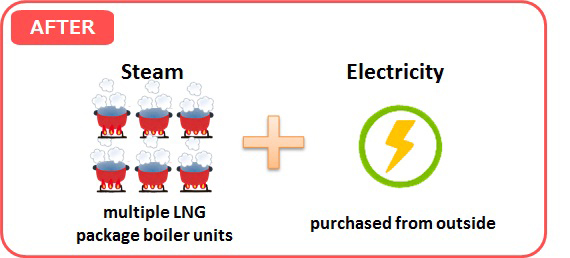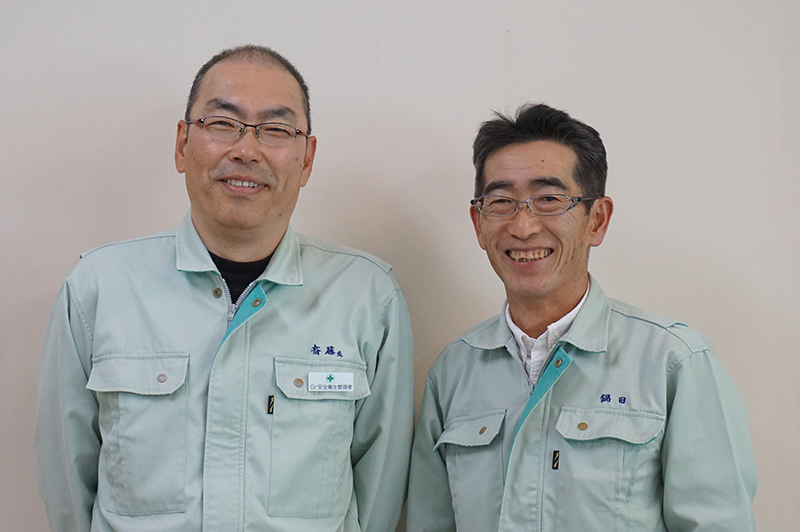Have you ever been to the Fuji plant? In 2017, the Fuji plant evolved into a deanery plant with the major remodeling of its energy supply equipment. We interviewed Saito-san and Nabeta-san from the Production division, energy group of the Fuji plant.
Fuji plant’s previous energy supply equipment
The Fuji plant depends on the steam and electricity for its energy sources. We had used “C Oil boiler” which uses Bunker C oil for fuel to generate the steam for the electricity production and procured necessary amount of steam and electricity all by ourselves.
What triggered the equipment remodeling?
Our main production bases are shifting from Japan to other countries. Accordingly the Fuji plant will be required to shift from mass production to manufacturing high-end products in small quantities. As a result, the conventional boiler will be wasteful for the expected decrease in production, which will trigger a huge energy loss. In addition, the conventional equipment will require an enormous amount of maintenance costs to continue safety operation. For these reasons, we began to discuss the remodeling of the energy supply equipment.
Finding the best equipment for the future Fuji plant
We assessed capital investment costs, operational costs, fluctuating fuel prices, and also environmental impacts. No matter how much we curb costs, we cannot ignore the emissions of environmentally hazardous substances. Besides, we need to pay particular attention to the safety of fuel transportation as the plant is surrounded by residential areas. Consequently, we concluded that we would use multiple LNG package boiler units to supply steam, with electricity purchased from outside.
The advantages of the new equipment
Based on the following advantages, we decided to install multiple LNG package boiler units.
1. A significant decrease in the emissions of environmentally hazardous substances
The emissions of environmentally hazardous substances were kept below the regulated level even when the conventional boiler equipment was in operation.
However, as a result of switching from “C Oil” which is a kind of oil to natural gas for fuel, the entire plant is expected to reduce sulfur oxide emissions by 99%, nitrogen oxide emissions by 30%, dust emissions by 60% and CO2 emissions by 20%* as LNG contains even lower levels of environmentally hazardous substances.
*Compared to the CO2 emissions with the same production volume when operating the conventional boiler.
2. A significant decrease in the work burden of boiler operations
The work burden has been significantly decreased as routine work needed for the conventional boiler, such as preparation heating of “C Oil”, and burner replacing, are no longer required. Furthermore, even if one boiler unit breaks down, the loss can be covered by other boiler units to avoid negative impacts on production. The broken unit on the other hand can be safely stopped to get proper repairing, therefore, the operational burden are expected to decrease.
3. Capable of flexibly responding to production fluctuations in the future
The conventional large equipment, which operates highly efficiently when production is large, is otherwise inefficient because a certain amount of energy is needed for its operation irrespective of the amount of steam and electricity generated. On the other hand, the new equipment makes it possible to change the number of boiler units being operated according to the production volume.
With energy for the equipment operation minimized, steam can be constantly supplied at the optimum efficiency.
For a plant that is more considerate of the local environment
<Here's comment from Saito-san and Nabeta-san.>
The introduction of the LNG package boiler enabled us to supply cleaner energy as fuel for the plant. We are going to do what we can to contribute to the safety of local people and the protection of the global environment. As employees of a company that operates chemical plants, we are going to make our utmost efforts for environmental sustainability and improvement.
Written by Ms. Maiko Omura
